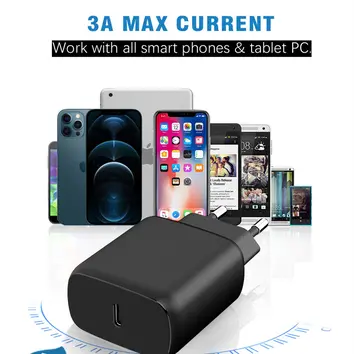Usb C Charger vs Usb | ZONSAN

1. Physical design: USB-C connectors are smaller and reversible, meaning they can be plugged in either direction. Traditional USB connectors are larger and can only be plugged in one direction.
2. Power delivery: USB-C supports higher power delivery, up to 100 watts. Traditional USB supports a maximum of 5 watts. This means USB-C can charge larger devices such as laptops, while traditional USB is mainly used for charging smaller devices such as smartphones and tablets.
3. Data transfer: USB-C supports faster data transfer speeds, up to 10 Gbps. Traditional USB supports speeds up to 480Mbps.
4. Video output: USB-C supports video output, allowing you to connect your device to a monitor or TV using a single cable. This feature is not available on traditional USB.
5. Audio: USB-C also supports audio and can be use to connect audio devices.
In general, USB-C is a more versatile and powerful connector that is becoming more popular as technology advances. However, traditional USB connectors are still widely used and are compatible with many devices.
Usb vs Usb C Charging Speed
The charging speed between USB and USB-C can vary depending on a few factors, such as the device being charged, the power of the charger, and the cable being used. However, generally speaking, USB-C charging tends to be faster than traditional USB charging.
One of the main reasons for this is that USB-C supports higher power delivery. USB-C can support power delivery of up to 100 watts, while traditional USB supports a maximum of 5 watts. This means that USB-C can charge larger devices such as laptops at a faster rate.
Another reason for the difference in charging speed is that USB-C supports faster data transfer speeds, up to 10 Gbps. This allows for more efficient charging, as more power can be delivered to the device in a shorter amount of time.
It's also worth noting that USB-C supports different charging standards such as Power Delivery (PD) and Quick Charge which can also affect charging speed.
In summary, USB-C can provide faster charging speed than traditional USB, because it supports higher power delivery and faster data transfer speeds.
Usb Charger vs Usb C Charger
The main difference between USB chargers and USB-C chargers is the type of connector they use. USB chargers use a traditional USB Type-A connector, while USB-C chargers use the newer USB-C connector.
USB chargers are compatible with a wide range of devices that use traditional USB connectors such as smartphones, tablets, and some laptops. They typically support a maximum power delivery of 5 watts, which is sufficient for charging smaller devices.
USB-C chargers, on the other hand, are designed to work with devices that have a USB-C connector, such as newer smartphones, tablets, and laptops. They can support a higher power delivery, up to 100 watts, which allows them to charge larger devices at a faster rate. USB-C chargers also support different charging standards such as Power Delivery (PD) and Quick Charge which can also affect charging speed.
In summary, USB chargers are compatible with a wide range of devices that use traditional USB connectors, while USB-C chargers are designed for newer devices that use the USB-C connector and can support faster charging with more power.
OEM USB C Phone Charger Recommendation

Read More

Read More

Read More

Read More